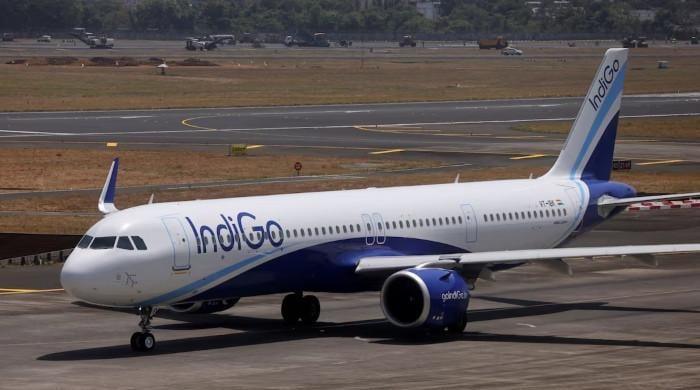- Indian carriers are undergoing heavy losses concerning reaches.
- Air India requests compensation in the midst of increasing losses.
- The main Indian roads seriously affected by the closure.
Karachi: Pakistan has decided to extend the closure of its airspace for Indian flights for a month for a month.
According to sources, the decision should be announced today (Wednesday) or tomorrow. Following this, an opinion to the airmen (NOTAM) will be issued.
Under the rules of the International Civil Aviation Organization (ICAO), aerial space restrictions cannot be imposed for more than a month at a time, requiring periodic extensions.
The decision followed a meeting of the National Security Committee (NSC) earlier this month, where Pakistan decided to block the Indian overflights after India has taken provocative measures after the Pahalgame. The restrictions apply to commercial and military aircraft.
The extension occurs in the middle of the increased tensions between the two nuclear arms neighbors following the attack on Pahalgam in April, which led to the death of 26 tourists in the Jammu and the cashmere occupied by illegally (iiojk).
India had unilaterally closed its airspace to Pakistani flights on April 23, causing a reciprocal ban from Islamabad the next day. India then took several other measures against Pakistan.
Later, from May 6 to 7, India launched attacks not caused against several Pakistani cities. In response, the armed forces of Pakistan launched a large-scale military reprisal action, called “Operation Bunyan-UM-Marsoos”, and targeted several Indian military targets in several regions on May 10.
Pakistan’s response led to the mobilization of world powers, after which a cease-fire was reached, which remains intact.
While the aeronautical industry of India has been faced with strong losses, the impact on the Pakistani aviation was minimal. With a single flight in the direction is reduced by China and limited operations in the Far East, the aviation sector of Pakistan remains largely unaffected.
This is not the first time that Pakistan has imposed such restrictions. Airspace closings have already been promulgated during the 1999 Kargil conflict and the 2019 Pulwama crisis – the two cases in which India was faced with greater aviation disruptions than Pakistan.
Financial suffering for Indian airlines
According to sources, Indian airlines underwent losses greater than 8 billion rupees in the last month. These are in particular 5 billion rupees in additional fuel costs and RS3 billion expenses incurred due to standofers forced by long-haul flights.
Sources note that Indian carriers operating Boeing 777 and Airbus A320 Family Aircraft had to bear 2 to 4 hours of flight time per trip. With approximately 150 reaches daily, fuel consumption has increased considerably.
Experts estimate that a Boeing 777 consumes approximately 6,668 kilograms of fuel per hour, while an Airbus A319, A320 or A321 uses approximately 2,400 kilograms per hour. At the current medium -sized fuel price of $ 0.82 per kilogram, Indian airlines spend nearly $ 557,625 per day on additional fuel. This amounts to more than 5 billion rupees of loss linked to fuel in a month.
In addition, prolonged journey times have triggered limits of the time of the crew service, requiring crew changes in public transport airports. These judgments also involve additional costs for landing costs, refueling and airport services. Over the past 30 days, these spending linked to the Stopover have totaled 2.5 Rs and 3 billion rupees.
Air India would be the worst carrier and asked for financial support from the Indian government. Other airlines, including Akasa Air, Spicejet, Indigo and Air India Express, have also faced operational disturbances.
Flights from Amritsar, Delhi, Ahmedabad, Bangalore and Jaipur are now forced to cross longer Western roads above the Oman Sea. These detours affect flights to destinations in North America, Europe and the Middle East.
Sources have indicated that if the prohibition continues and the Indian government does not provide special assistance, Indian airlines may be forced to take extraordinary measures to support operations.




